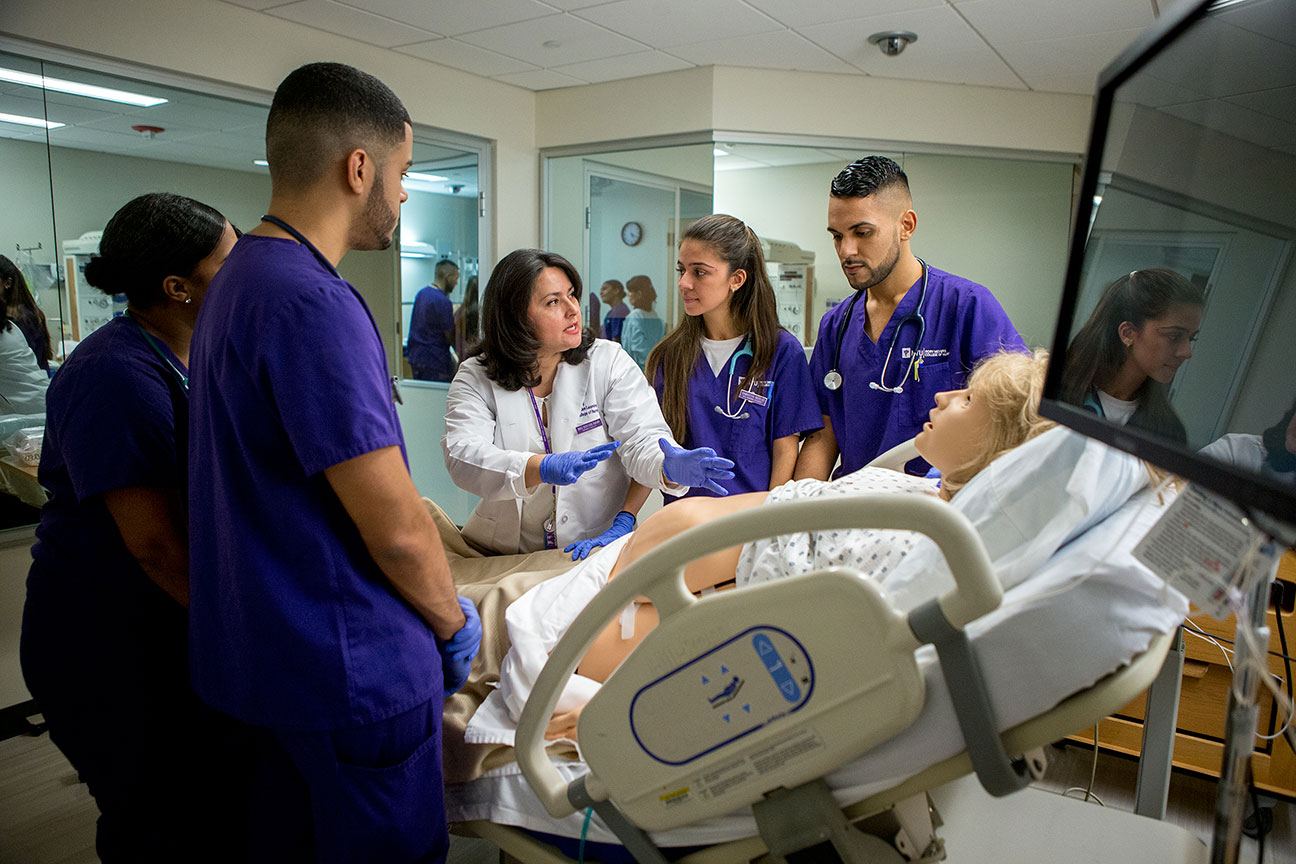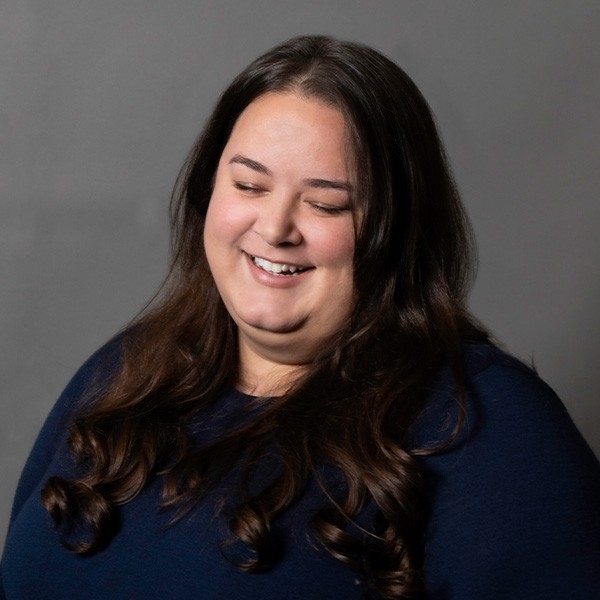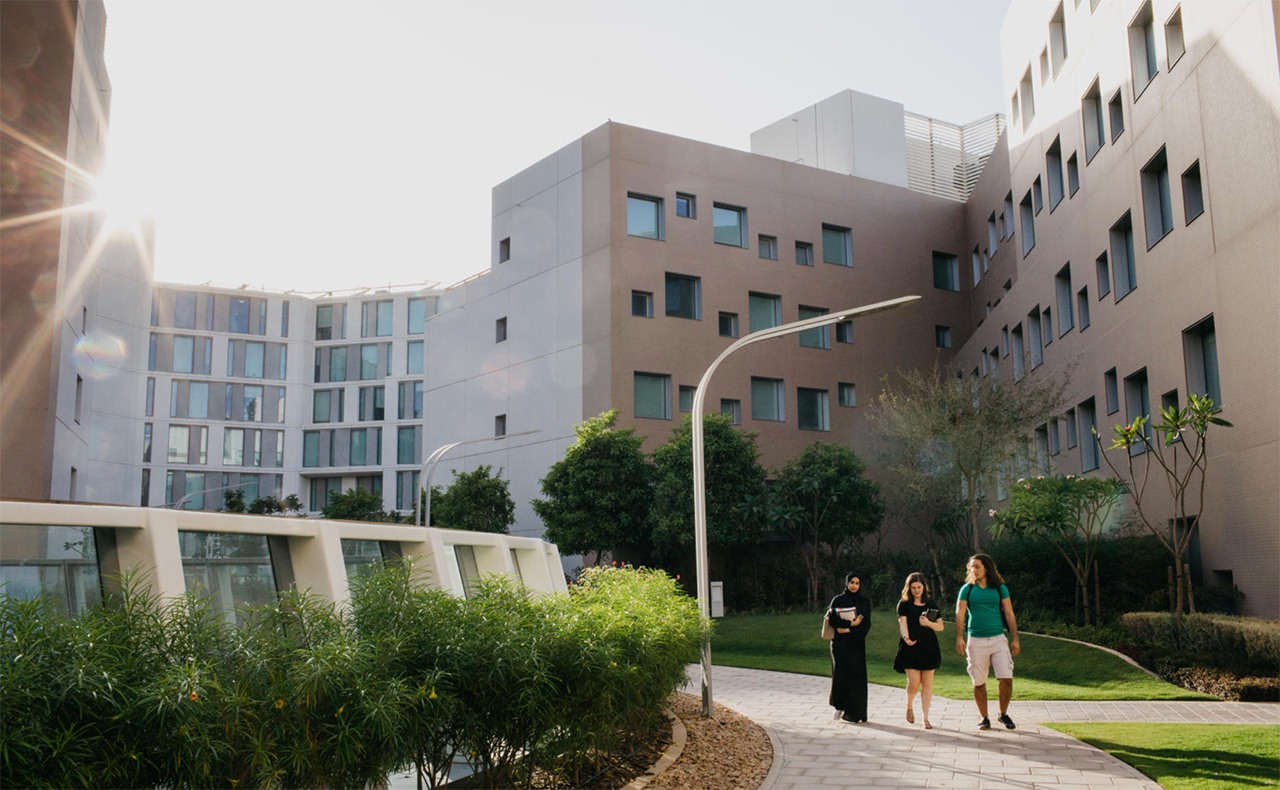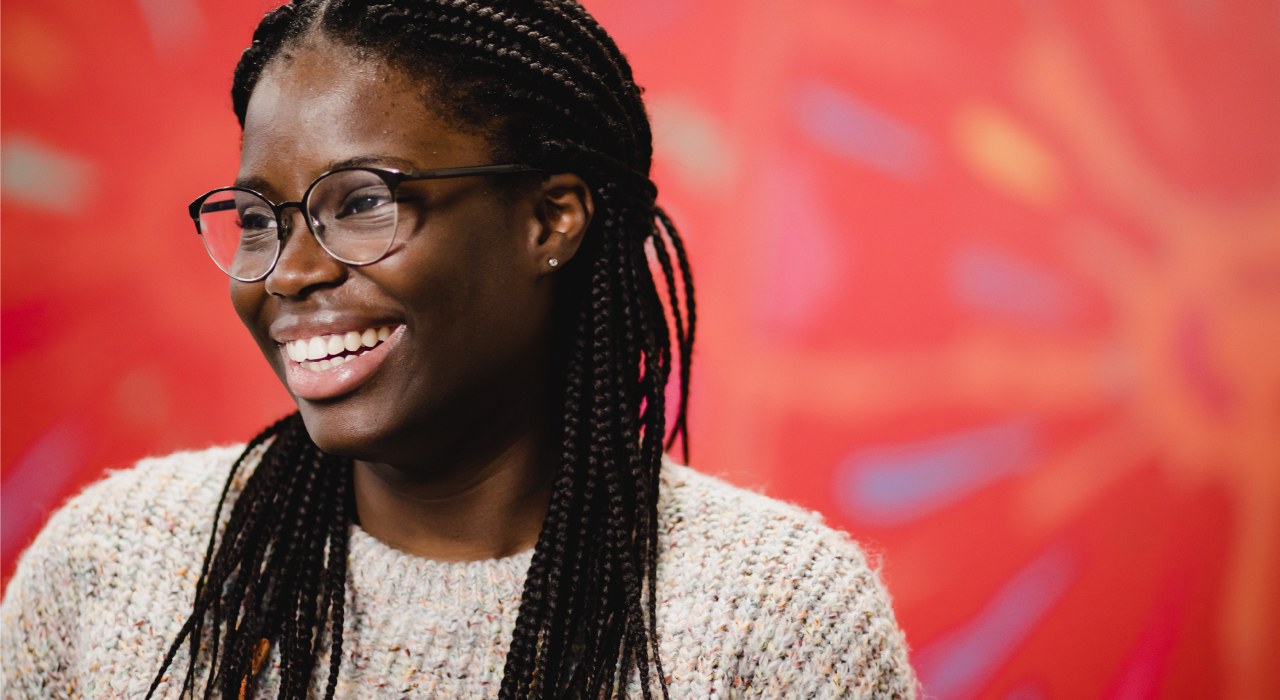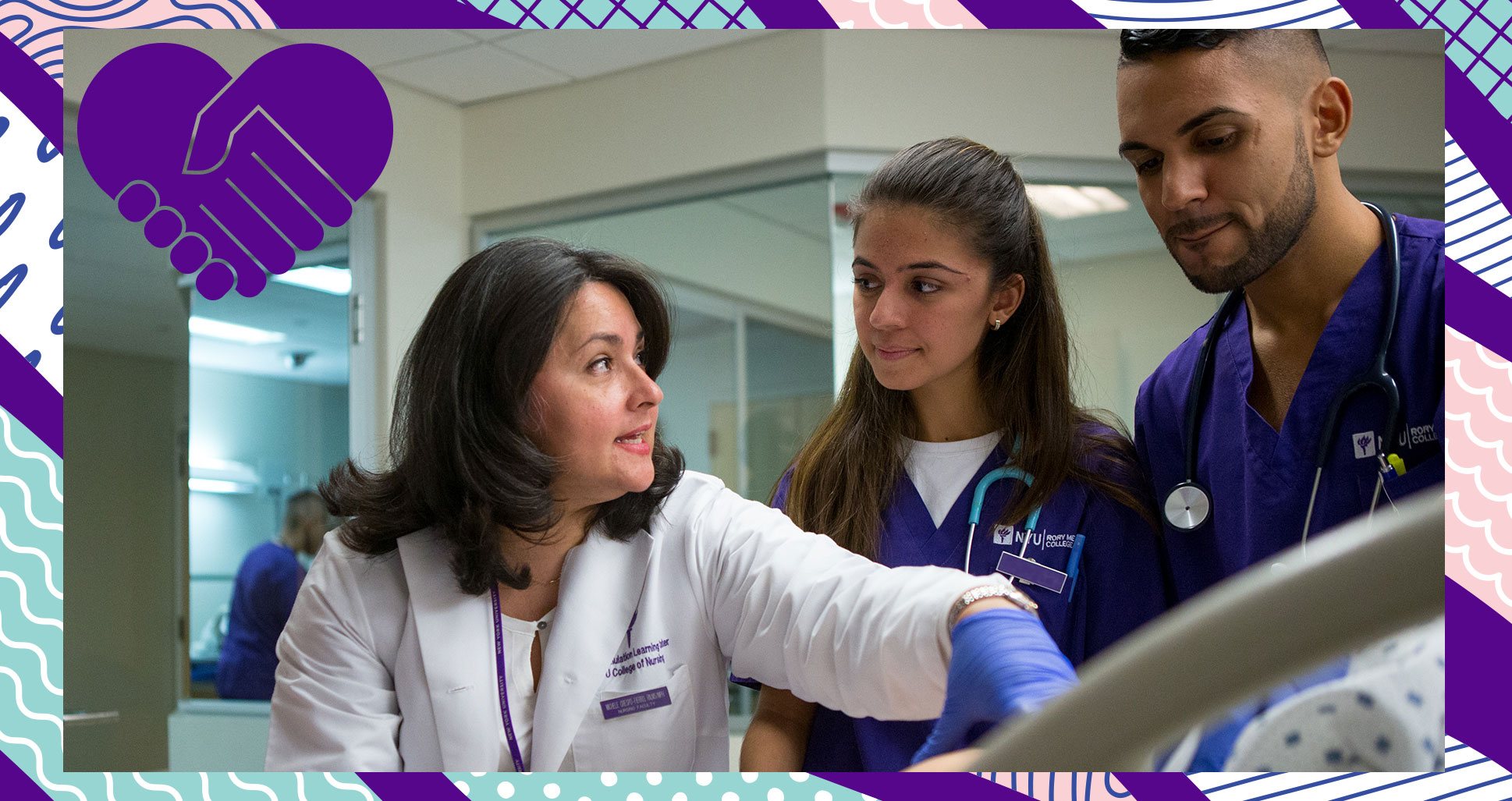
Nursing is about more than treatment. It’s about connecting on an individual level and making people the driving force behind their own care. At NYU Rory Meyers College of Nursing, students prepare to practice nursing in a variety of settings while developing a strong foundation in the liberal arts and sciences. And no one knows that better than NYU Meyers Professor Michele Crespo-Fierro, who got her start right here.
As an undergraduate, Crespo-Fierro was part of a nursing student cohort but also took advantage of everything NYU had to offer. That diversity of experience, she explains, made her a better nurse. “My friends were musicians, future teachers, and psychology students. So I can talk about whatever my patients are interested in,” she says. “My current research involves interviewing HIV-positive women. When we have real conversations, we aren’t just talking about medications and symptoms but about their lives and interests. That helps create trust.”
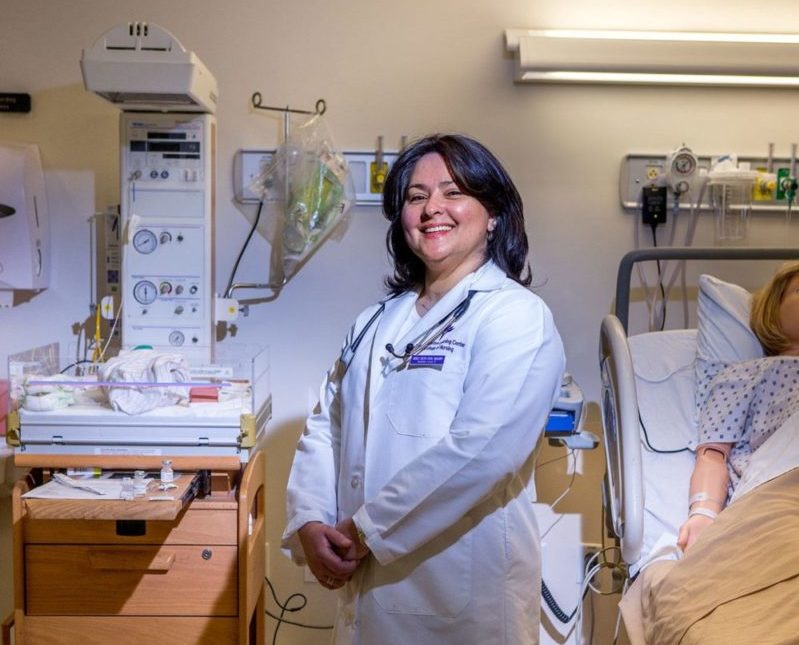
Compassion and Control
In fact, building trust is central to Crespo-Fierro’s whole philosophy. At NYU, she teaches ethics around topics like LGBTQ health, sexual assault, and substance use and discusses how social determinants of health impact wellness. Additionally, she researches transcultural nursing care, which takes each patient’s background and expectations into account. “There’s no saying: I’m caring for you, so you have to do what I say,” she explains. Instead, each patient’s individual experience is used to tailor a plan of care based on their culture.
“Giving back that control is an important part of providing care,” she affirms. And for many people, simple things such as asking whether they want the TV on or off can have a meaningful impact on their sense of autonomy. But no matter what, she says, “the patient is the leader. We have the resources, but they decide what is going to work for them.”
Safety and Solidarity
Helping her students understand patient-led care is something Crespo-Fierro strives for. But she also emphasizes that to be effective caregivers, students themselves should feel cared for and should pay attention to their own needs. “During their first day in a hospital, as part of our clinical curriculum, we pull them out for lunch. I want them to learn to take that time for themselves every day. I want to help them feel confident, and I want them to feel emotionally safe as well,” she explains.
At NYU Meyers, students’ emotional and physical well-being is paramount. Students can learn safely, training in the school’s state-of-the-art Clinical Simulation Learning Center. There, undergraduates and graduates alike experience the outpatient environment before working with real patients. The Center’s high-tech learning tools include computerized mannequins: human-shaped models used in the simulation of patient scenarios. In addition, students work with standardized patients (SPs), actors trained to portray patients in a variety of medical situations where communication is key. In this way, students develop the hard skills to be medical professionals and the soft skills to be compassionate caregivers.
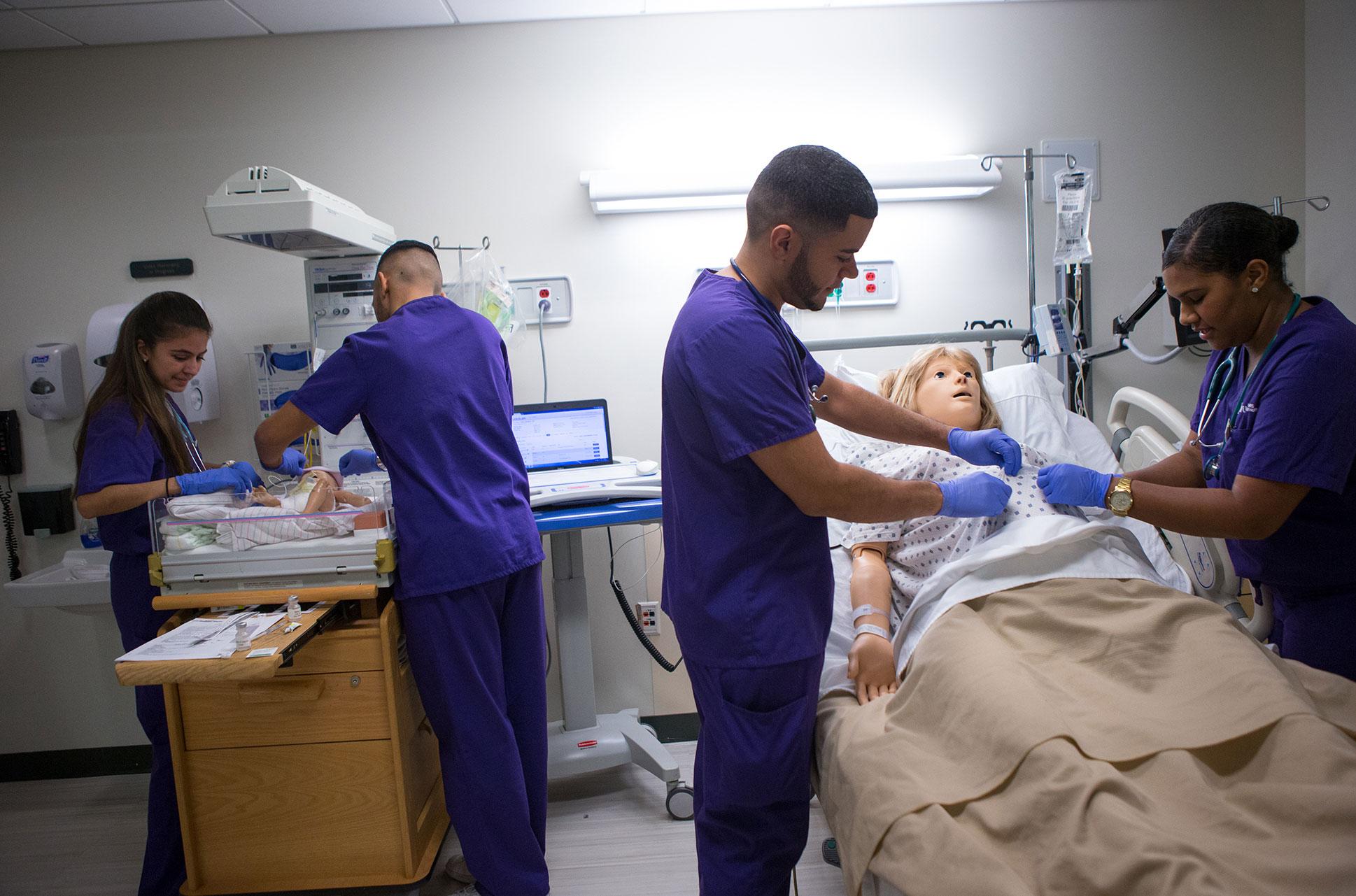
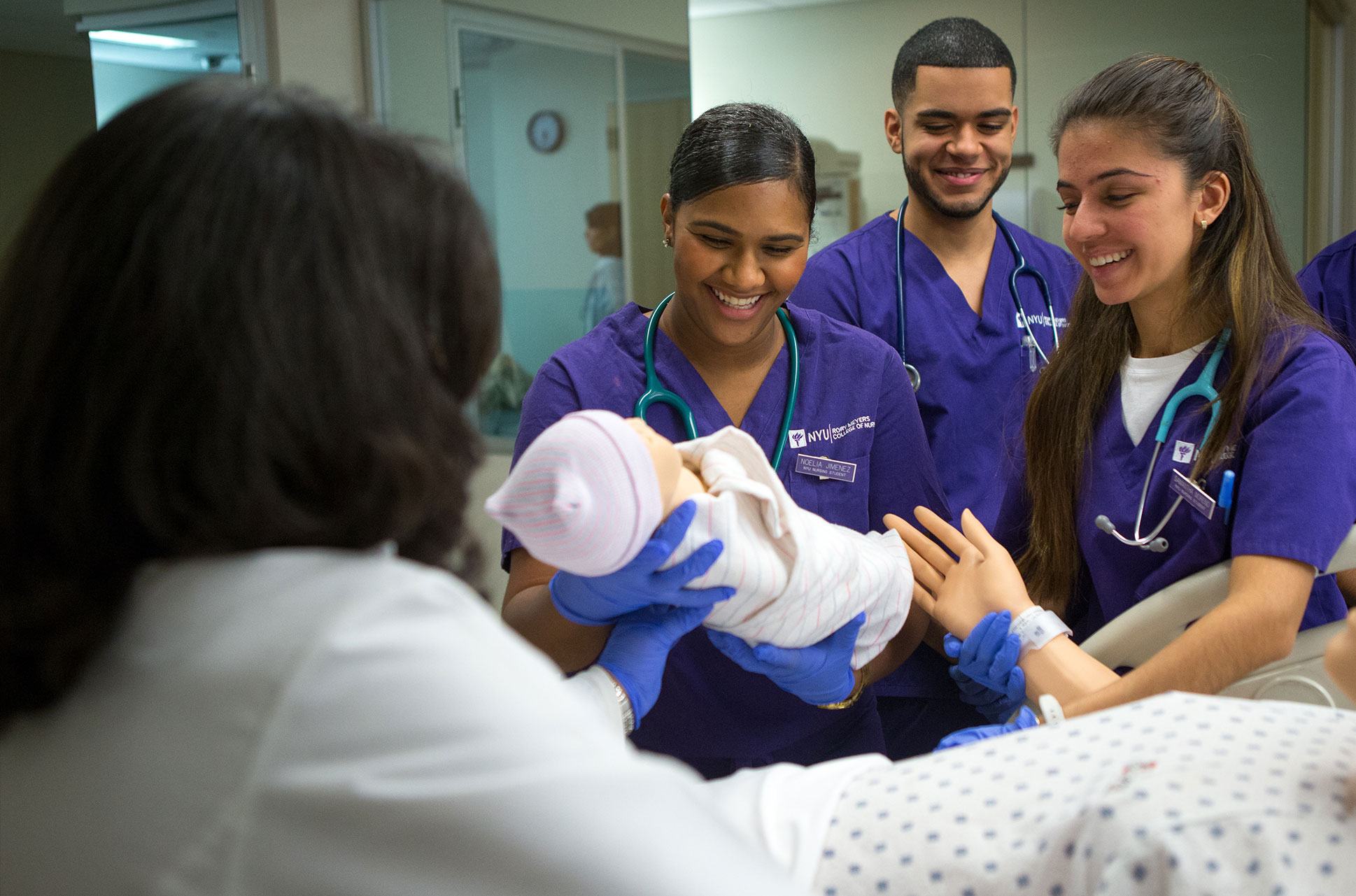
Connection and Contacts
Self-care is also about having supportive people to talk to, which is why Crespo-Fierro connects her students to peers and professional mentors as early as possible. “If I’m going to a conference or a meeting, I invite students,” she says. “It’s a mission of mine to get them building networks right away. That way, they have different people who can give them advice about working toward their goals.”
As a result, Crespo-Fierro even started a network for students here at NYU. As the founding faculty adviser of Latinos Aspiring to Imagine Nursing Opportunities (LATINOS), she encourages students to discuss their shared experiences and connect with the larger New York City Latino community. The group meets regularly with nurses in the local chapter of the National Association of Hispanic Nurses (NAHN), who act as mentors and host outreach programs.
Ultimately, Crespo-Fierro’s favorite part of teaching and mentoring is seeing her students build on what she’s taught them. “I started LATINOS, but now students are leading it. This year, they ran a crash course in medical Spanish for their classmates, and lots of people showed up,” she explains. “I’m proud of the initiative my students take and how they’re always learning from and supporting each other.”
